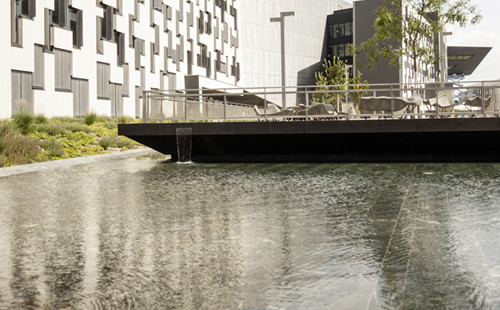IPE in the world: How government stability and consumer interests shape sustainable investments in Indonesia
Have you ever wondered about the technology that makes up your clothing? Sidan Raeskyesa investigates the political threads shaping the textile industry.
Leading article by D. G. Sidan Raeskyesa, MSc Teaching and Research Associate.
Have you ever wondered about the technology that makes up your clothing?
Check whether your clothes contain fabric made by TENCEL, ECOVERO, or VEOCEL. If yes, congratulations! You have supported the sustainability movement! Next question: Do you know who created that technology? It is Lenzing AG, an Austrian company that focuses on producing sustainable wood-based fibers. The company recently received an EU Ecolabel for environmentally friendly fiber production at its Indonesian production plant. Austria's foreign direct investment (FDI) firm has been in Indonesia since 1983. Since 2021, the company has invested up to 100 million Euros to upgrade its production site to be more environmentally friendly.
However, why did Lenzing AG choose Indonesia? And why does Lenzing AG put so much effort into upgrading its production plant in Indonesia? One may point out the Indonesian government's stability. Indeed, the government's ability to maintain a stable political situation attracts and retains foreign investment, as stability allows investors to thrive in the host countries' economies. Moreover, Indonesia has many tropical forests, providing abundant wood resources, which Lenzing AG needs. Another reason would be the availability of labor, which is plentiful in Indonesia.
These facts can explain why Lenzing AG invests in Indonesia, but they don't tell us why Lenzing AG has put so much effort into upgrading its facilities to be more environmentally friendly. In this case, the politics and the power of groups from the country where the foreign investors come from (home country) have influence. Politics is not only about power but also about preferences. Start with the ability of the consumers to influence the companies' interests in environmental issues by buying products from companies that conduct environmentally friendly operations within their supply chain (e.g., low-emission factories). At the same time, these consumers are also voters. They can vote for politicians supporting sustainable policies, such as increasing spending on public research for renewable energy or programs supporting companies investing in technology that generates less environmental damage. Consequently, governments from the country where the foreign investors come from may respond to this particular interest. They may create new regulations and programs that align with society's interests.
For example, at the supranational level, Lenzing AG and Södra from Sweden received funding from the European Union in June 2023, up to EUR 10 million for their project developing methods to recycle textile waste on an industrial scale. The funding program is part of the LIFE Project, the EU's environmental and climate action funding instrument. At the same time, from the company’s side, Lenzing AG has adopted addressing climate change as one of its missions. Lenzing AG is aware that the textile industry is one of the most significant contributors to climate change. They aim to improve their technologies to use less energy and water, which has become one of the reasons for upgrading their production site in Indonesia. In addition, the company recognizes the importance of sustainability practices in their production process, which is essential for their Austrian customers to buy their products.
As the host country, the government of Indonesia welcomes the facilities enhancement. Indonesia wants to maintain its commitment to a better climate by promoting technology that generates less emissions and supports renewable energy. However, the link between FDI and sustainability does not only come from the government. The interests of consumers and firms can also be a medium influencing FDI to be more sustainable towards environmental conditions.
Analysing the interests of groups in society and their impact on socioeconomic development is something that we do passionately at the Institute of International Political Economy.
Sign up for our mailing list for regular updates from the Institute. You can find the subscription form here: Subscribe to the newsletter
